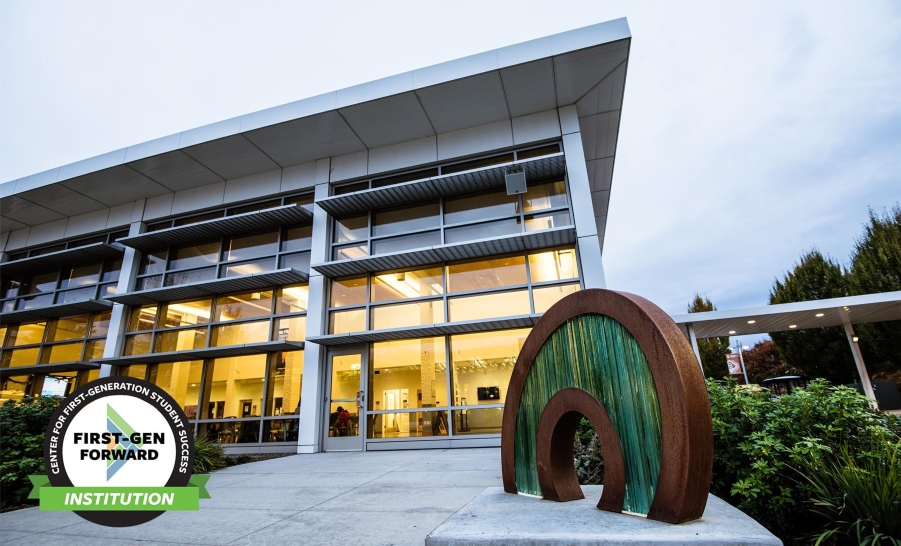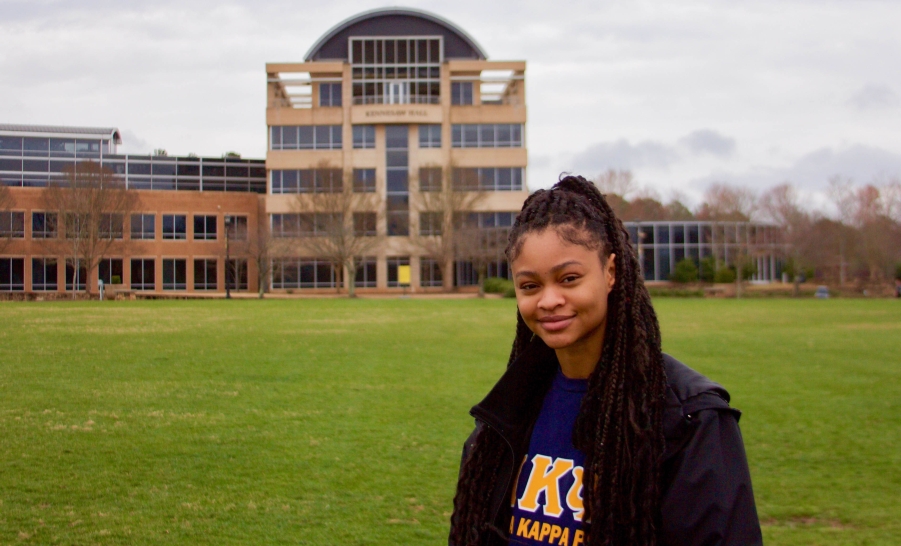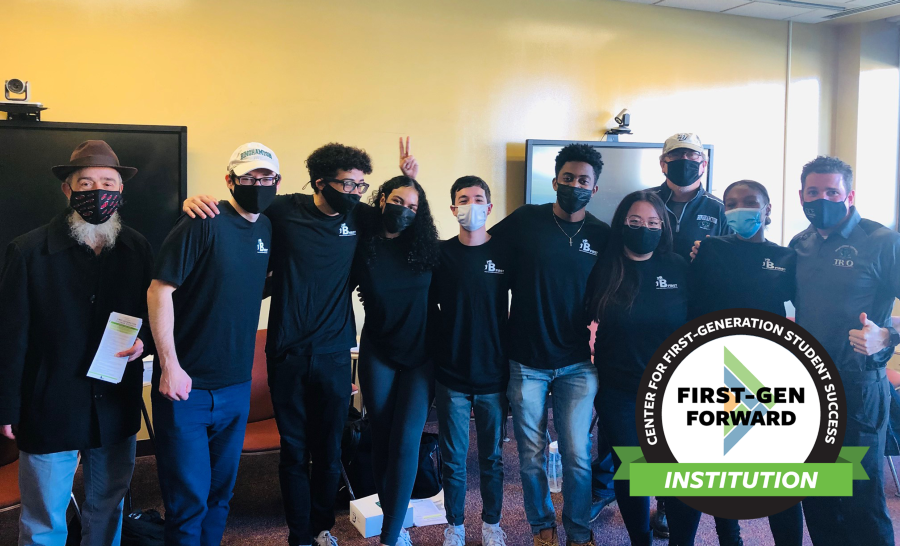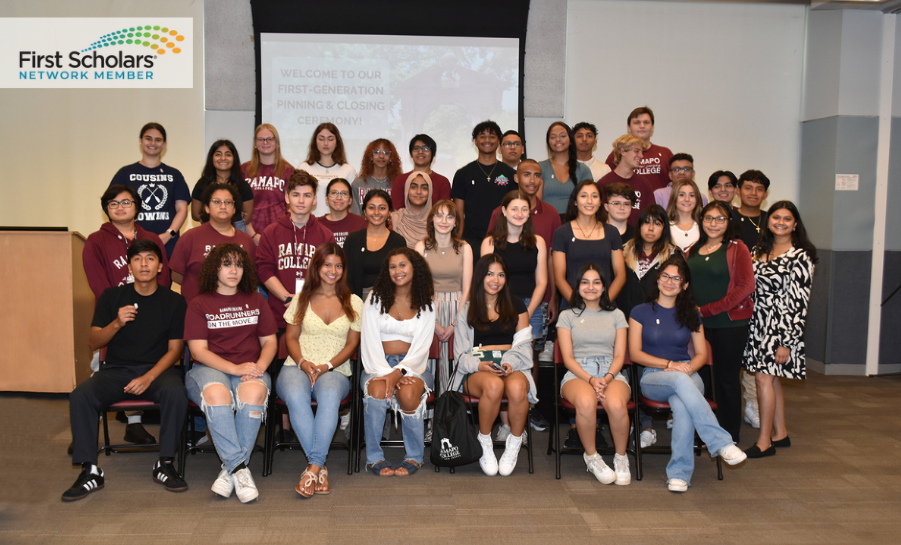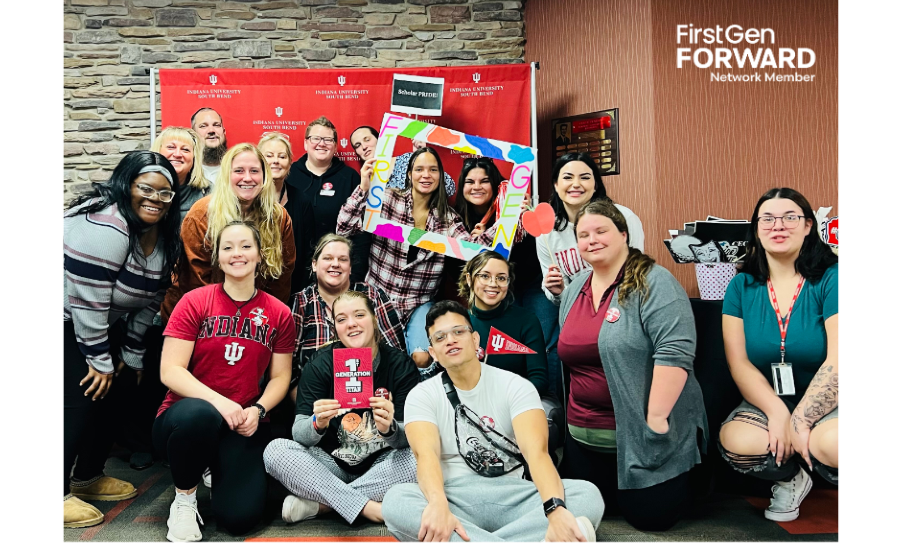Helping First-Gen College Students Thrive
Ed Kosowski, Kimberly Riddick, University of North Texas at Dallas / FirstGen Forward / February 02, 2024
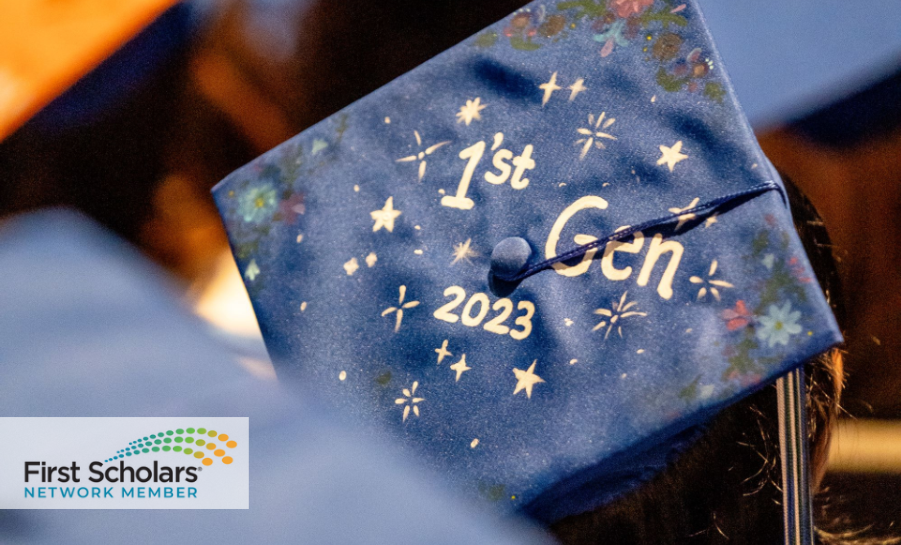
Many first-generation college students are unsure whether they should even go to college, much less whether they could earn a degree.
At the University of North Texas at Dallas (UNT Dallas), we believe it is our responsibility to show them they can. And guide them every step of the way. “If there’s a will, there’s a way,” said Cristian Medina, a December 2023 UNT Dallas School of Business graduate who is now enrolled in an MBA program.
Medina achieved a 4.0 cumulative GPA during his undergraduate general business studies. He credits his professors, mentors and advisors with helping him stay on track as a first-gen student.
It’s not easy. The journey to and through college is often complicated and intimidating. Students must contemplate what’s next after high school and whether they should enter the workforce full-time. They debate the merits of higher education and search for the right college or university. Not to mention, once they decide “yes,” applying for financial aid, tackling the admissions process and balancing the responsibilities of life. Students – and their families – need a navigator.
That’s why easily accessible and sustainable support for first-generation students is critical, even before many know which career path they want to choose.
The University of North Texas at Dallas specializes in assisting first-generation college students to explore, grow and discover their full potential. In addition to hosting three federal TRIO programs on campus (McNair Scholars, Upward Bound, and Educational Talent Search), the University is innovating and implementing programming and opportunities to engage, encourage, and support first-gen scholars early in their academic careers, in some instances before they ever enroll here.
Seventy percent of UNT Dallas undergraduate students identify as the first in their families to go to college and benefit from support in identifying and navigating financial resources, parental and familial education about higher education and experiences that foster the self-confidence to persist through the process.
I want to be the motivation, not the only one achieving success. A role model and support system.
That’s why UNT Dallas is creating new ways to reach first-gen college students prior to college enrollment. As young women and men progress through their secondary education, we provide a seamless pathway from high school to college that they, their parents and even their teachers may not know exists.
One innovative program showing impressive results is Trailblazer Express, an automatic admissions partnership with nearly two dozen local high schools. Its first cohort of students enrolled at UNT Dallas in 2023, with more expected in 2024 as additional schools join the initiative.
It involves a dedicated network of admissions personnel, career counselors, scholarship and financial aid advisors, superintendents, principals and alumni.
“I want to be the motivation, not the only one achieving success. A role model and support system,” said Luis Mata, a May 2023 graduate who has committed himself to mentoring current and future UNT Dallas students, especially those who identify as first-gen like him.
Trailblazer Express proactively offers conditional acceptance to students without them having to apply first. In some cases, high school principals have surprised students at special assemblies, where UNT Dallas leaders revealed the program, explained its benefits and offered encouragement.
“This is your opportunity. This is something that’s for you, and you can’t miss it. It’s an extraordinary gift,” Sebastian Ruiz Trujillano, a freshman who was automatically admitted while a senior at Sunset High School in Dallas, told The Dallas Morning News.
Once first-gen students are enrolled at UNT Dallas, they can gain access to another program designed to aid students that identify as first-gen persist through the undergraduate experience called Trailblazer Elite. TBE, as it is known, provides resources, communityand mentorship to acclimate first-gen students to university life. Its focus is on helping first-gen students navigate college through tailored programming and intentional support so that students are empowered to build the skills needed to be successful from admission to graduation.
“I am a full-time student who also works full-time, so I really don’t have a lot of free time. But my mentor helped guide me and made sure I was getting all the help and financial aid I could get. This program has done so many amazing things for me and continues to do so,” said Makayla DeLeon, a recent graduate and TBE scholar.
The college experiencepresents unique challenges for students that identify not only as first-gen college students, but also have varied documentation statuses, including so-called Dreamers covered by DACA, the Deferred Action for Childhood Arrivals. Dreamers who receive DACA protection from deportation are also able to obtain a social security number and driver's license and finish their education.
Students – and their families – need a navigator.
UNT Dallas recognizes the importance of assisting DACA recipients. The mission of an additional campus program, Trailblazing Dreamers Collaborative, is to empower students in DACA to ensure they overcome various immigration-related hurdles. TDC refers them to additional programs, such as the North Texas Dream Team, and guides them through the process of applying for a coveted TheDream.US scholarship, specific to first-generation students.
“I got a full ride. I didn’t have to pay a cent,” said Lissbeth Bayona-Mancia, a December 2023 graduate of the School of Education, referring to the significance of her Dream.US scholarship. She came to the U.S. from El Salvador at the age of four. Her dream is to become a public-school teacher. “I want to show kids they can do anything if they set their mind to it.”
Other resources for undocumented students at UNT Dallas help find local advocacy groups and legal services.
Yet another way UNT Dallas supports first-generation college students is through a unique and inspirational training program for educators called Principal Impact Collaborative. PIC is a two-year fellowship program that brings together experienced public school principals from across North Texas to reignite their passion, take action to improve their campuses and make their schools more equitable for students of diverse experience.
It includes tools and resources to execute their visions and workshops that provide leadership development and immersive experiences. By inspiring these principals to elevate the effectiveness of their campuses, PIC creates a ripple effect that benefits first-gen and all students, motivating them to pursue a college degree, including its return on investment.
“The benefits that individuals receive from a college education flow down to their communities, to their families, to their economies. Creating investments that improve affordability to improve postsecondary value is really something that benefits everyone,” said Diane Cheng, Vice President of the Institution for Higher Education Policy, following a new report about the financial effects of a college education.
And speaking of money, UNT Dallas has been ranked and reviewed as a top university for value in several well-respected national evaluations. They cited the impressive combination of rigorous academics, broad diversity and notable affordability. For those reasons, first-gen students considering UNT Dallas can take the next step in their educational journey, knowing they will receive a valuable experience and quality outcome while remaining cost-conscious.
At UNT Dallas, we pride ourselves on our mission to empower students, transform lives, and strengthen communities. Faculty and staff demonstrate our five shared values in all they do.
We appreciate being accepted into the First Scholars Network and embrace all it represents. Every day in every way, we want to demonstrate and share why we should be the first choice for first-generation college students in North Texas.
